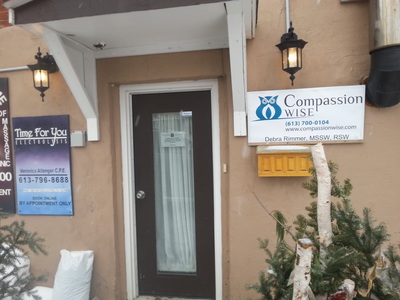We are not trained to make euthanasia decisions. Most people have little or no experience even thinking about, or discussing the idea of letting an animal die by this process.
When a veterinarian brings up the idea of euthanasia for a very ill, elderly, or injured pet you might find yourself cringing, in an effort to "protect" yourself from even the thought of choosing to say goodbye to your beloved pet. The idea of actually planning a time and place for the death may throw you into a state of confusion, denial, shock, depression, or anger.
Making a euthanasia decision takes courage and trust - for you,, your beloved animal, and your veterinarian. Remember there is unfortunately no perfect answer, no perfect timing or solution. It is not a simple issue. You need to take the time necessary to think about things and be respectful of your animals health and wellbeing.
You know your pet
You have the closest relationship with your pet and know what matters to them in their life.
Think about their joys, what makes them content. Watch them closely. If your pet loves to be close to you and enjoys long walks and becomes distant and is unable to walk - take this into consideration. If your pet enjoys catting around the neighborhood and no longer seems to be interested in going outdoors take this into consideration. If your animal companion loves to eat and then loses interest in eating take this into consideration.
Watch for changes, signs, listen to your own heart, but also listen to your head. Gather up the courage to unselfishly allow your beloved to pass on before a time when pain and suffering compromise them. Try your best to make this decision to unconditionally love them and give them the chance to move on... as they would want you to.
Listen to the physiological effects and medical condition of your pet: ask questions and obtain as much information as you can from your veterinarian, through personal research, and take this information into consideration.
Finally, recognize that animals do not have the same experience of time that humans have. For example, if you go on holiday and leave your pet in care, when you return they have not been calculating how long you have been gone. They are only happy to be with you again. For them time is fluid and they are present in the moment, not before nor after.
Animals grieve too.
If there are other animals in your pet’s life , they will be aware of changes, and will be aware of the loss. Make sure you let them know that their friend has moved on, if possible have them present at the euthanasia. They may show very little interest at the time, but will be aware that their housemate or friend is no longer around. Sometimes, the death of one animal in the house will affect the behaviours of another animal. The hierarchy of dominance may change or the animal(s) that are left will go through a noticeable period of grieving.
Take good care
Taking care of yourself before, during, and after the death is essential. Provide yourself with a comforting and supportive environment if possible. Eat soft, easily digestible foods, (especially if you are not hungry) (i.e., applesauce, yogurt, mac and cheese) and make sure you keep yourself warm. You may find that your body temperature is changing and you are cold more often. Snuggle with a warm quilt or blanket.
Understand that you may not feel like being very social, going out to parties or events where alot of energy is required. You may choose to be around people who "get" the pain of your loss, and understand that you are grieving.
Attending a Pet Loss Support Group in person or online may provide you with support from people who understand and have been through, or are going through similar experiences.
Many people have not had the privilege of loving an animal, and are not aware of the unconditional love that comes with an animal-human bond, thus the excruciating and pure loss of an animal companion.
Finally, remember that grief is a process and must be honoured with patience for yourself as you take the time you need. Be as respectful and conscious as you can during this difficult time.
Debra Rimmer, MSSW, RSW Owner/director: Compassion Wise
Compassion Wise offers professional counselling and support before, during, and following the loss of your beloved pet. www.compassionwise.com
Debra Rimmer, a registered Social Worker, deeply honours the human-animal bond. She has been an animal lover and a supporter of animal-related organizations throughout her life. She has shared the life journeys of many animals including difficult euthanasia decisions for her beloved pets.
Professionally, she has worked with many individuals, couples, and families who are grieving the loss of a beloved pet. She has assisted animal care shelters with euthanasia sensitivity support, and veterinary office teams with compassion fatigue, relaxation, and stress management care. Additionally, following the loss of her beloved labrador, she saw the need for support created and facilitated the Pet Loss Support Group in Austin, Texas, USA for 12 + years.
When a veterinarian brings up the idea of euthanasia for a very ill, elderly, or injured pet you might find yourself cringing, in an effort to "protect" yourself from even the thought of choosing to say goodbye to your beloved pet. The idea of actually planning a time and place for the death may throw you into a state of confusion, denial, shock, depression, or anger.
Making a euthanasia decision takes courage and trust - for you,, your beloved animal, and your veterinarian. Remember there is unfortunately no perfect answer, no perfect timing or solution. It is not a simple issue. You need to take the time necessary to think about things and be respectful of your animals health and wellbeing.
You know your pet
You have the closest relationship with your pet and know what matters to them in their life.
Think about their joys, what makes them content. Watch them closely. If your pet loves to be close to you and enjoys long walks and becomes distant and is unable to walk - take this into consideration. If your pet enjoys catting around the neighborhood and no longer seems to be interested in going outdoors take this into consideration. If your animal companion loves to eat and then loses interest in eating take this into consideration.
Watch for changes, signs, listen to your own heart, but also listen to your head. Gather up the courage to unselfishly allow your beloved to pass on before a time when pain and suffering compromise them. Try your best to make this decision to unconditionally love them and give them the chance to move on... as they would want you to.
Listen to the physiological effects and medical condition of your pet: ask questions and obtain as much information as you can from your veterinarian, through personal research, and take this information into consideration.
Finally, recognize that animals do not have the same experience of time that humans have. For example, if you go on holiday and leave your pet in care, when you return they have not been calculating how long you have been gone. They are only happy to be with you again. For them time is fluid and they are present in the moment, not before nor after.
Animals grieve too.
If there are other animals in your pet’s life , they will be aware of changes, and will be aware of the loss. Make sure you let them know that their friend has moved on, if possible have them present at the euthanasia. They may show very little interest at the time, but will be aware that their housemate or friend is no longer around. Sometimes, the death of one animal in the house will affect the behaviours of another animal. The hierarchy of dominance may change or the animal(s) that are left will go through a noticeable period of grieving.
Take good care
Taking care of yourself before, during, and after the death is essential. Provide yourself with a comforting and supportive environment if possible. Eat soft, easily digestible foods, (especially if you are not hungry) (i.e., applesauce, yogurt, mac and cheese) and make sure you keep yourself warm. You may find that your body temperature is changing and you are cold more often. Snuggle with a warm quilt or blanket.
Understand that you may not feel like being very social, going out to parties or events where alot of energy is required. You may choose to be around people who "get" the pain of your loss, and understand that you are grieving.
Attending a Pet Loss Support Group in person or online may provide you with support from people who understand and have been through, or are going through similar experiences.
Many people have not had the privilege of loving an animal, and are not aware of the unconditional love that comes with an animal-human bond, thus the excruciating and pure loss of an animal companion.
Finally, remember that grief is a process and must be honoured with patience for yourself as you take the time you need. Be as respectful and conscious as you can during this difficult time.
Debra Rimmer, MSSW, RSW Owner/director: Compassion Wise
Compassion Wise offers professional counselling and support before, during, and following the loss of your beloved pet. www.compassionwise.com
Debra Rimmer, a registered Social Worker, deeply honours the human-animal bond. She has been an animal lover and a supporter of animal-related organizations throughout her life. She has shared the life journeys of many animals including difficult euthanasia decisions for her beloved pets.
Professionally, she has worked with many individuals, couples, and families who are grieving the loss of a beloved pet. She has assisted animal care shelters with euthanasia sensitivity support, and veterinary office teams with compassion fatigue, relaxation, and stress management care. Additionally, following the loss of her beloved labrador, she saw the need for support created and facilitated the Pet Loss Support Group in Austin, Texas, USA for 12 + years.








 RSS Feed
RSS Feed
